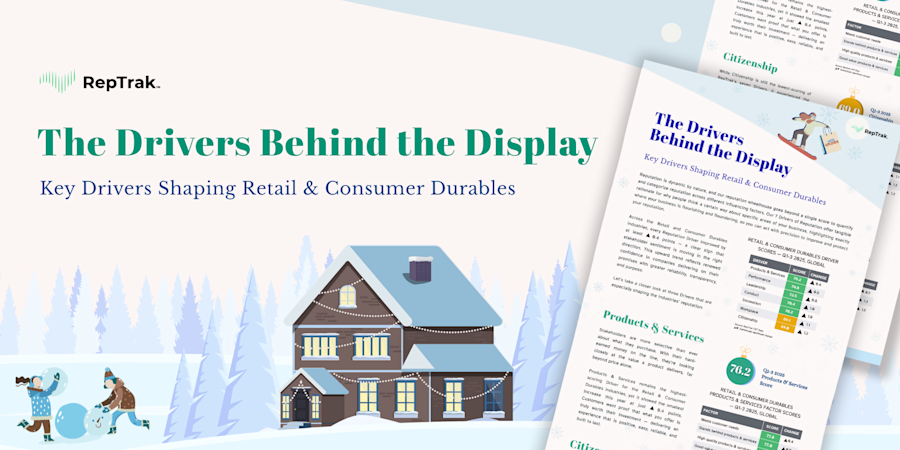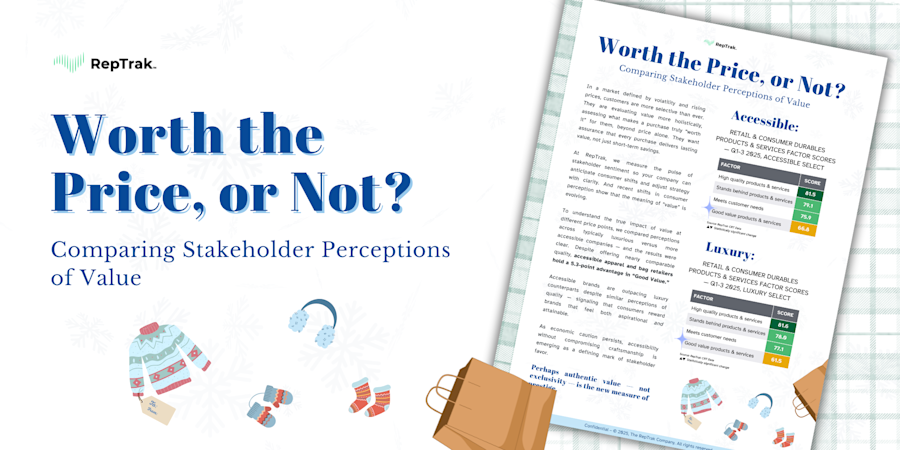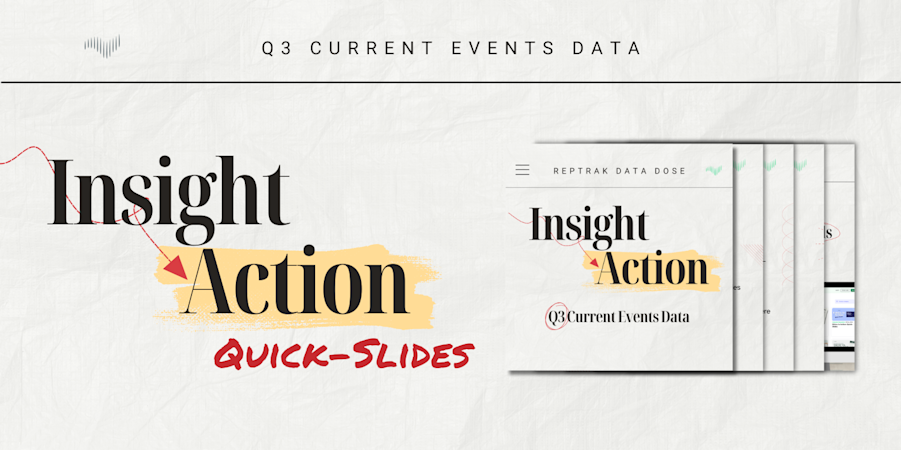Reshaping Reputation in the Workplace
Blog Post22 Jul, 2019
Now that we know Millennials will make up nearly half of the working population by 2020, work-life balance is a standard expectation. Since employee happiness has a direct impact on customer happiness, it is essential for companies to focus on workplace culture and employee well-being. Many companies have already taken steps to achieve this, and it is no coincidence that they are thriving.
Here are some interesting case studies to get you started on improving your company's workplace.
The modern workplace is not the only thing that matters
Google has consistently been recognized for its unique office space, and is considered a pioneer in modern workplace culture, but believe it or not, that doesn’t correlate to Google having a strong Workplace reputation. Google’s reputation ranking dropped from the #3 most reputable company to #14 in our latest Global RepTrak research.
The company’s actions from this past year have caused a decline in all aspects of its business, especially in Workplace (2.4-point drop). Other reputation drivers that suffered were related to ethical behavior (-1.7 points), lack of transparency (-1.2 points), workplace practices such as equal opportunities (-2.1 points), and concern for employee well-being (-2.8 points). Even though Google continues to create algorithms and gather qualitative data, this doesn’t seem to be paying off. Perhaps it's time for Google to be a little bit more human and a little less data-driven.
Boston's culture-driven darling
If you work in tech, or the Greater Boston area, you’ve likely heard of HubSpot and their “Culture Code.” This was created by Dharmesh Shah, CTO and Co-Founder of HubSpot. The document outlines the company’s culture based on the acronym of HEART: humble, empathetic, adaptable, remarkable, and transparent.
A key goal of the Code is “creating a company we love.” Through the Culture Code and many other policies the company has in place - think ultimate work flexibility, unlimited vacation, a general motto to just “use good judgement”—the company has gained significant recognition. In 2018 they were ranked #1 Best Place to Work by the Boston Business Journal.
In 2019, the company’s Workplace score drove 11.2% of its reputation. This is not something to be ignored. Companies like HubSpot are poised to build a strong culture and win at reputation.
Linking workplace and reputation
LinkedIn is a communication standard in the corporate world, an essential tool for sales, marketing, and HR executives. What's interesting about LinkedIn is that although it is the place where people go to network, interview and take the next step in their employment online, our studies show that the general public has very little awareness of what LinkedIn's workplace is like.
Workplace is a dimension that tends to have the highest levels of fence-sitters (those who are not sure or neutral in their position). In the U.S., LinkedIn's fence-sitters for the Workplace dimension are very high, making up 71% of respondents. This translates into an average Workplace score for LinkedIn, while its parent company Microsoft enjoys a strong score.
LinkedIn recently went through an office renovation where transforming their culture was a main priority. They established 5 pillars that consist of: transformation, integrity, collaboration, humor, and results. This strategy shows a shift in LinkedIn's culture to authenticity and humanness—two qualities that positively impact corporate reputation.
Higher Purpose = Happy Employees
Reputation and culture doesn’t just have to be about fancy offices, free food, and flexibility. Companies will win over employee stakeholders when they have a higher societal purpose. Establishing strong company values and living up to them each day as an organization is a good place to start. These initiatives must begin and thrive internally, with employees committed to building and owning corporate culture, before they become apparent to external stakeholders.
REI is a great example of this. The company has made the Fortune Best 100 Companies to Work for the past 21 consecutive years, which means they must be doing something right.
REI’s programs to become a good corporate citizen are unparalleled. For example, they invest 70% of their annual profits to support the outdoor community. They also operate 100% on renewable energy. The company is on to something, and their reputation will continue to benefit. When we interviewed Chief Communications Officers around the world this year, we learned that delivering on a corporate brand purpose is the #1 reputation macro-trend.
If you want to step up your reputation, increase sales, and simply be a better company, start with your own people and your own culture. Then build outward.
Learn more about the 10 macro-trends driving reputation this year.
Ana Angelovksa Research Director The RepTrak Company [email protected]






